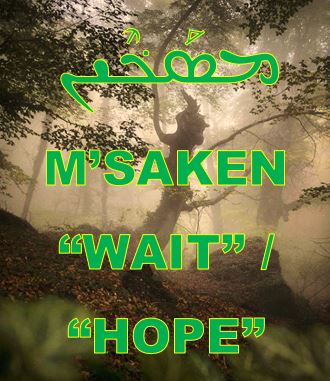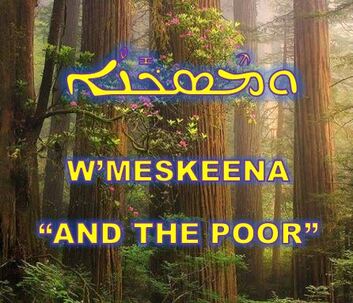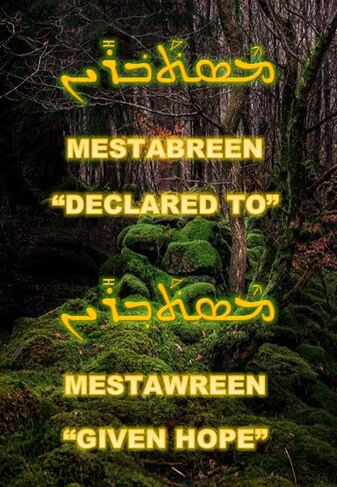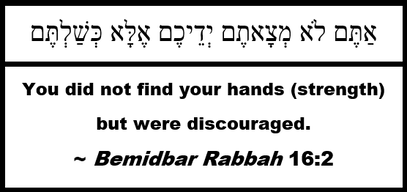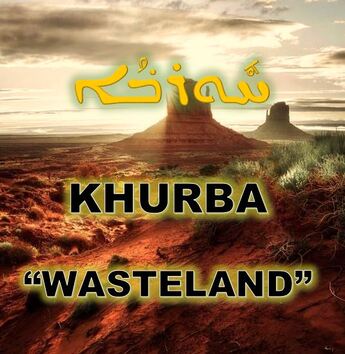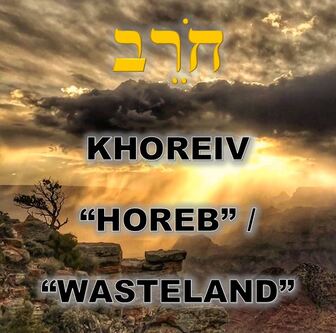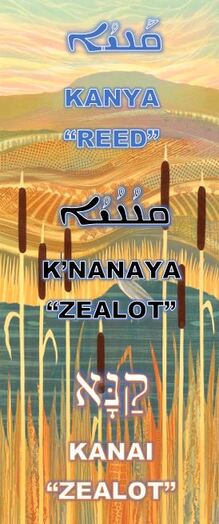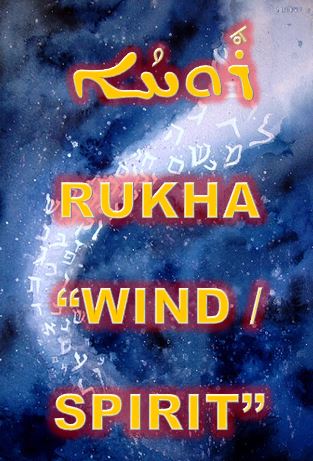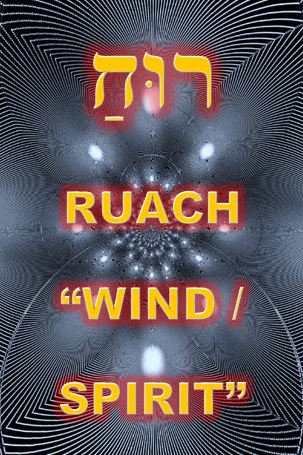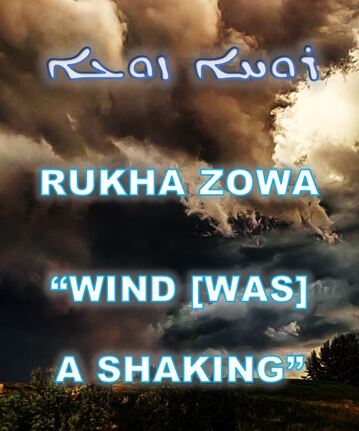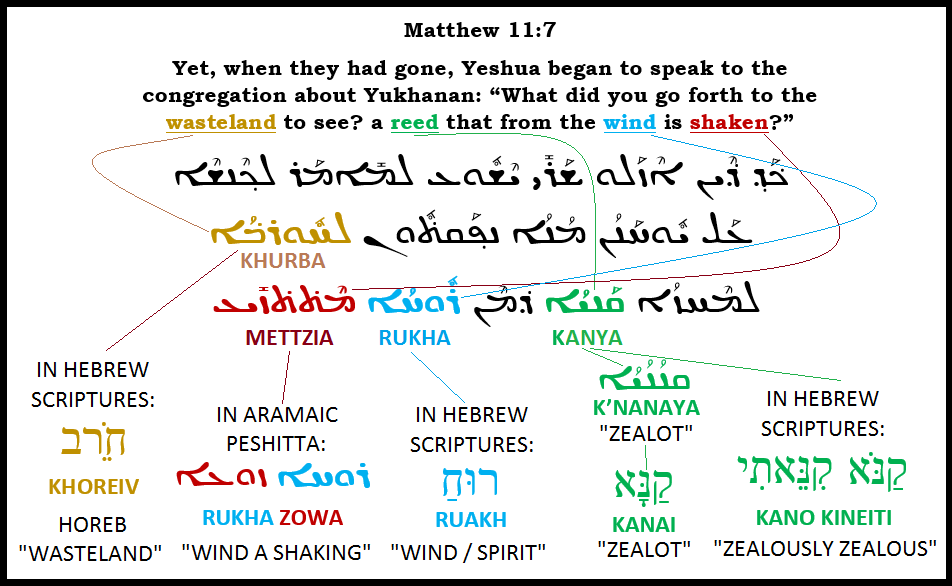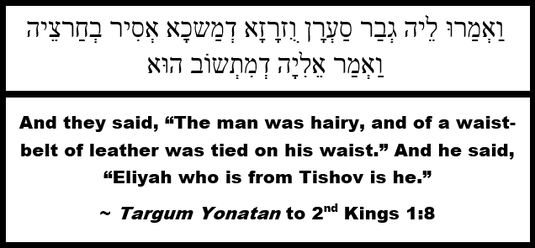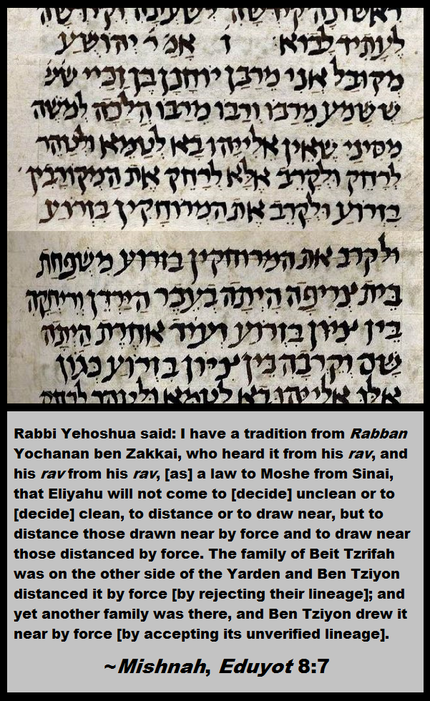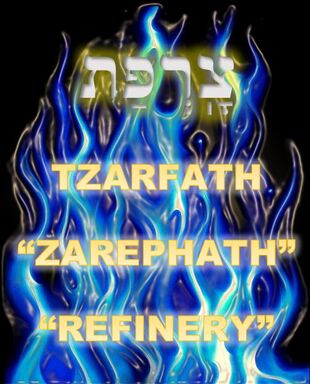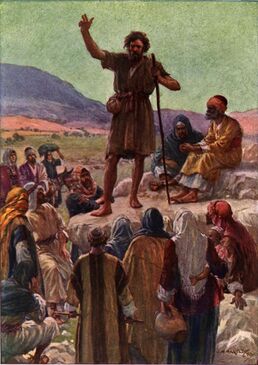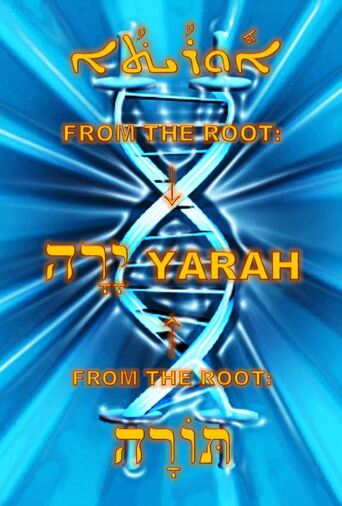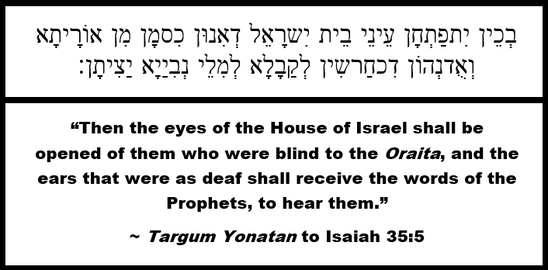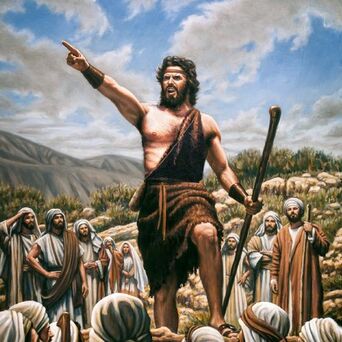THE BAPTIST
by Jeremy Chance Springfield
7/8/20
Zealously he ministered to Israel. Without fear, he called out the sins of the people and the idolatry-masked-as-hypocrisy of the religious elite. Dressed in unflattering clothing and upon the backdrop of a wilderness untamed, the prophet bellowed the call to repentance in terms clear and unrelenting. Along the reed-lined banks of the river Jordan he found an audience in both the curious and the contrite, and even in the grumbling cabal of scholastic snobbery who forcibly held sway over much of the spiritual expression in the land of Abraham.
As must be any prophet, he was at once inspiring and infuriating.
As must be any prophet, he was at once inspiring and infuriating.
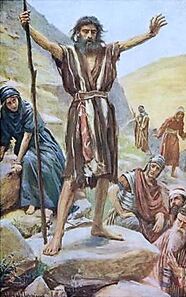
The spiritual heir of the prophet Elijah, John the Baptist carried the mantle of the ancient Tishbite with bold determination. His efforts would prepare the hearts of Israel to receive the Kingdom message of the Messiah who was about to begin His controversial career from the frontier of Galilee to metropolitan Judea. He only made a brief appearance in the Gospels in several instances, yet his significance concerning the arrival of Yeshua and the rousing ministry He undertook was vital to the Kingdom that was soon to come.
Because of this unconventional yet limited exposure, John makes for an enigmatic figure in the Gospels. A substantial focus is given to matters surrounding his conception and birth, and outside of that, most of his appearances center around his involvement in the baptism of Yeshua. The majority of what we are told about John, however, comes from the portrait of importance painted of him by Yeshua Himself. This portrayal greatly magnified the position of John in his assumption of the ministry of Elijah. By prophecy of an angel in the solemnity of the Temple, it was foretold he would continue the work of the ancient prophet in his days as the herald of Messiah.
This is recorded in Luke 1:17.
Because of this unconventional yet limited exposure, John makes for an enigmatic figure in the Gospels. A substantial focus is given to matters surrounding his conception and birth, and outside of that, most of his appearances center around his involvement in the baptism of Yeshua. The majority of what we are told about John, however, comes from the portrait of importance painted of him by Yeshua Himself. This portrayal greatly magnified the position of John in his assumption of the ministry of Elijah. By prophecy of an angel in the solemnity of the Temple, it was foretold he would continue the work of the ancient prophet in his days as the herald of Messiah.
This is recorded in Luke 1:17.
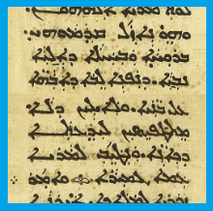
And he shall go before him in the spirit and in the power of Iliya the prophet, that he should ‘turn back the heart of the fathers unto the sons,’ and those that are not convinced unto the knowledge of justice, and to prepare for Marya a consummate people.
The angel’s words are surprising in some ways but are also the fulfillment of a long-held expectation, first uttered in shocking revelation by another prophet. Malachi 4:5-6 preserves the amazing promise for us.
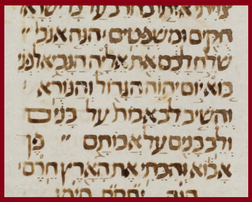
5 See! I shall send to you Eiliyah the prophet before the coming of the great and the fearful day of YHWH.
6 And he shall turn the heart of the fathers upon the sons, and the heart of the sons upon their fathers, lest I come and strike the earth [with] a curse.
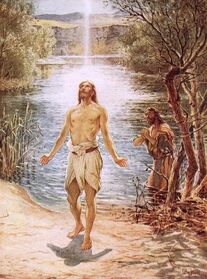
While the image of John the baptizer is prominent as the one immersing the repentant in the waters of the Jordan river, his prophesied inherent connection to Elijah is typically much less stressed when it comes to discussion regarding his important role in the events of the redemption story. It would seem from many teachings based on the text of the Gospels that there is not a lot to parallel John to the ancient prophet. For this reason, most of the treatments concerning John are focused on the baptismal part of his ministry, particularly his recognition of and involvement in the immersion of the Messiah.
However, if we turn to the Peshitta’s text and pay attention to the clues preserved in the Aramaic language version of these matters concerning John, we will be met with a sudden clarity showing these parallels to the prophet Elijah were strongly and repeatedly made when they are appreciated from the nuances of Messiah’s mother tongue.
However, if we turn to the Peshitta’s text and pay attention to the clues preserved in the Aramaic language version of these matters concerning John, we will be met with a sudden clarity showing these parallels to the prophet Elijah were strongly and repeatedly made when they are appreciated from the nuances of Messiah’s mother tongue.
This is best seen in a brief exchange between Yeshua and the disciples of John, and in Yeshua’s subsequent startling clarification of his cousin’s significance in the plan of redemption. The account is to be found in Matthew 11:2-15.
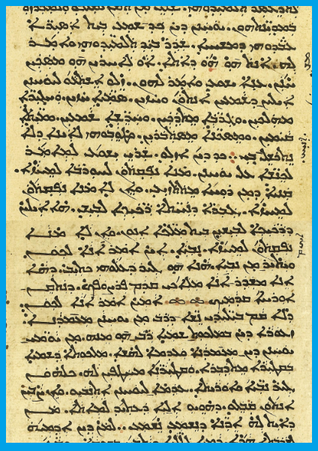
2 Yet, Yukhanan, when he heard [from] the house of prison the deeds of Messiah sent by the hand of his students,
3 then he said to him: “Are you he who comes, or for another are we waiting?”
4 Yeshua replied, and said to them, “You must go; you must relate to Yukhanan these that you are hearing, and you are seeing:
5 the blind are seeing, and the lame are walking, and the lepers are purified, and the deaf are hearing, and the dead are being raised, and the poor are being declared to!
6 And blessed is he who shall not be offended in me!”
7 Yet, when they had gone, Yeshua began to speak to the congregation about Yukhanan: “What did you go forth to the wasteland to see? a reed that from the wind is shaken?
8 And if not, what did you go forth to see? a man who is dressed [in] outer garments of soft cloth? See! those who are softly dressed are among the kings!
9 And if not, what did you go forth to see? a prophet? Yes! I say to you: and more than a prophet!
10 For this is concerning him that is written: ‘See, I am sending My messenger before Your face, that he should prepare the way before You.’
11 Surely, I say to you, that none has arisen by those born of women who is greater than Yukhanan the Immerser, yet, the least in the Kingdom [of] the Heavens is greater than he!
12 Yet, from the days of Yukhanan the Immerser, and until now, the Kingdom of the heavens by force is guided, and the forceful seize it!
13 For all of the Prophets and the Oraita prophesied until Yukhanan.
14 And if you are willing, you must receive that he is Eliya who was prepared to come!
15 He that has for him ears to hear shall hear!
3 then he said to him: “Are you he who comes, or for another are we waiting?”
4 Yeshua replied, and said to them, “You must go; you must relate to Yukhanan these that you are hearing, and you are seeing:
5 the blind are seeing, and the lame are walking, and the lepers are purified, and the deaf are hearing, and the dead are being raised, and the poor are being declared to!
6 And blessed is he who shall not be offended in me!”
7 Yet, when they had gone, Yeshua began to speak to the congregation about Yukhanan: “What did you go forth to the wasteland to see? a reed that from the wind is shaken?
8 And if not, what did you go forth to see? a man who is dressed [in] outer garments of soft cloth? See! those who are softly dressed are among the kings!
9 And if not, what did you go forth to see? a prophet? Yes! I say to you: and more than a prophet!
10 For this is concerning him that is written: ‘See, I am sending My messenger before Your face, that he should prepare the way before You.’
11 Surely, I say to you, that none has arisen by those born of women who is greater than Yukhanan the Immerser, yet, the least in the Kingdom [of] the Heavens is greater than he!
12 Yet, from the days of Yukhanan the Immerser, and until now, the Kingdom of the heavens by force is guided, and the forceful seize it!
13 For all of the Prophets and the Oraita prophesied until Yukhanan.
14 And if you are willing, you must receive that he is Eliya who was prepared to come!
15 He that has for him ears to hear shall hear!
Let us take each verse and dig into the details to appreciate what Yeshua said about John in his relationship to the prophet Elijah.
By this time, John had been imprisoned due to his unsuccessful attempt to wear down the indefatigable pride of King Herod. Although the prophet himself had declared Yeshua to be the “Lamb” who would take away the world’s sins, he now expressed a growing doubt as to the legitimacy of that purpose, delivered to his cousin by his own dutiful disciples in verse 3.
By this time, John had been imprisoned due to his unsuccessful attempt to wear down the indefatigable pride of King Herod. Although the prophet himself had declared Yeshua to be the “Lamb” who would take away the world’s sins, he now expressed a growing doubt as to the legitimacy of that purpose, delivered to his cousin by his own dutiful disciples in verse 3.

…“Are you he who comes, or for another are we waiting?”
To this baring of the humanity of the prophet, Yeshua gives an answer that is direct, and yet hints also at something more. In an effort to allay the apprehension in the heart of John, the reply given is of an unexpected depth that addresses the issue and hints at the situation in its wider scope. Yeshua’s response in verse 5 speaks volumes.

…the blind are seeing, and the lame are walking, and the lepers are purified, and the deaf are hearing, and the dead are being raised, and the poor are being declared to!
These words are direct references to two different passages from the book of Isaiah. The first reference is from Isaiah 35:5-6.
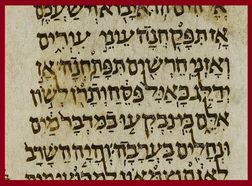
5 Then shall be opened the eyes of the blind, and the ears of the deaf shall be opened.
6 Then shall the lame leap as a deer, and shall sing the tongue of the mute, for waters shall burst forth in the wilderness, and streams in the desert.
The second reference is from Isaiah 61:1.
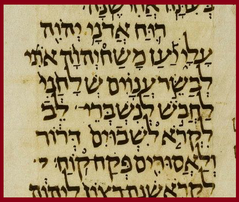
The Spirit of the Master YHWH is upon me, because YHWH has anointed me for good news [to] the poor; He sent me to bind the shattered heart, to proclaim for the captives freedom, and for the imprisoned a release.
Yeshua’s ministry devoted time to these very people: the blind, the deaf, the lame, and the mute were all touched by the Galilean’s healing hand. This reply to the Baptist addressed the worry he held as he sat behind bars, but it also went further in the way that Yeshua responded to him, for the Aramaic terms chosen would have held a deeper meaning to the prophet, as well.
He had sent his disciples to Yeshua with the question of did they need to be “waiting” for someone else, instead? The Aramaic of John’s words is the simple term of M’SAKEN, meaning “wait / hope.”
He had sent his disciples to Yeshua with the question of did they need to be “waiting” for someone else, instead? The Aramaic of John’s words is the simple term of M’SAKEN, meaning “wait / hope.”
Yeshua responds by telling those disciples: “…and the poor are being declared to.” This simple closing phrase to John meant more than it seems on the surface. It is the phrase W’MESKEENA MESTABREEN. The term W’MESKEENA “and the poor” is spelled closely and sounds similar to the term M’SAKEN “wait / hope.” The two terms are actually from different roots but are spelled almost identically. The reference to the “poor” is thus a direct phonetic call-back to the “wait / hope” of John’s question. It is like Yeshua was saying: “and those who wait / hope are being declared to.”
Additionally, the second term in this phrase is MESTABREEN “are being declared to.” If pronounced slightly different, it could be rendered as MESTAWREEN “are being given hope.” No change in spelling is required to achieve this. It is like Yeshua was saying: “and the poor are being given hope.”
If taking both word-plays into account, however, it would seem to suggest that Yeshua was saying: “And those who hope are being given hope.” His response to John is thus seen as incredibly important not only as an answer, but also as an encouragement to not give up on hoping for the redemption he had originally expected. Just like his predecessor Elijah, John was human and prone to doubting the plan and control of the Holy One. Yeshua’s answer spoke to that burgeoning doubt and attempted to dismantle it with terms of “literal” hope.
He ends his reply to those disciples with the proclamation in verse 6.
He ends his reply to those disciples with the proclamation in verse 6.

And blessed is he who shall not be offended in me!
The traditional translation of the Aramaic term used here of NETHK’SHEL “offended” is more likely intended in the sense of “discouraged,” a usage of it found in the ancient Jewish text of Bemidbar Rabbah 16:2.
The reference here in this ancient Jewish commentary on the book of Numbers is to the spies sent to reconnoiter the land of Canaan, who had their faith shaken by what they saw in the land. The term KESHALTEM does not suggest they were “offended,” but rather, that they were “discouraged.” This alternative meaning of the word shows that its usage by Yeshua in the context of John doubting due to the circumstances in which he found himself makes more sense as “discouraged,” as well, instead of the popular “offended.”
As the disciples of John leave to take Yeshua’s reply back to their teacher, Yeshua remains on the topic of his cousin and the part he had to play in the redemptive story. His words going forward are illuminating in regard to John’s role as Elijah. Although He only briefly mentions Elijah by name outright, the links to Elijah are in almost everything that he says regarding the imprisoned Baptist.
He begins in verse 7 with a loaded question.
As the disciples of John leave to take Yeshua’s reply back to their teacher, Yeshua remains on the topic of his cousin and the part he had to play in the redemptive story. His words going forward are illuminating in regard to John’s role as Elijah. Although He only briefly mentions Elijah by name outright, the links to Elijah are in almost everything that he says regarding the imprisoned Baptist.
He begins in verse 7 with a loaded question.

Yet, when they had gone, Yeshua began to speak to the congregation about Yukhanan: “What did you go forth to the wasteland to see? a reed that from the wind is shaken?”
This question about John is all wrapped up in the context of Elijah, but it is not understood as such unless it is read and appreciated in its Aramaic expression. Consider the following and how each part of what Yeshua says in verse 7 links the Baptist to Elijah when considered from the Aramaic.
The initial words center on the people going “to the wasteland” to see John. This term for “wasteland” is the word KHURBA.
The initial words center on the people going “to the wasteland” to see John. This term for “wasteland” is the word KHURBA.
KHURBA “wasteland” is the Aramaic version of a word that played an important role in a situation in Elijah’s own ministry. It is found in 1st Kings 19:8.
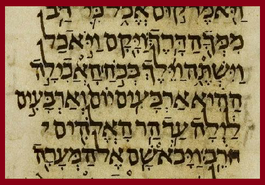
And he rose, and ate and drank, and went on the strength of that food forty day[s] and forty night[s], until [the] Mountain of the Deity—Khoreiv…
The word that ends the quote is the place-name KHOREIV and is the Hebrew pronunciation for the term that is probably familiar to many in its English form: Horeb! Horeb in its original form of KHOREIV simply means “wasteland!” It is the exact same term as KHURBA – which is merely pronounced slightly different due to its Aramaic form. This immediately connects what Yeshua was saying about John to Elijah!
The parallel to Elijah continues, however, with the next part of Yeshua’s question in verse 7. The term Yeshua uses here for “reed” and the phrase about being moved by the wind creates a powerful play in the Aramaic. The word for “reed” is KANYA, and literally just means “reed.” However, it looks and sounds very close to the Aramaic word K’NANAYA, meaning “zealot.”
It is literally just one letter difference in the Aramaic. It is also almost identical to the Hebrew word for “zealot,” being KANAI.
This aligns with Elijah when we return to the passage from 1st Kings 19:10 and see what he tells the Holy One there at Horeb.
This aligns with Elijah when we return to the passage from 1st Kings 19:10 and see what he tells the Holy One there at Horeb.
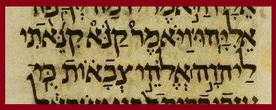
And he said, “I have been zealously zealous for YHWH, Deity of armies…”
We can thus see that the mention by Yeshua of John likened to a “reed” and the close similarity of that Aramaic word to the Aramaic and Hebrew word for “zealot” astoundingly links to Elijah’s own words about his extreme zeal for the Holy One.
This connection is further established in how Yeshua was referencing Isaiah 35:5-6 in Matthew 11:5 in the response given to the disciples of John. This mention of a “reed” here is likely further reference to Isaiah 35:7 and the “reeds” spoken of being in the wilderness where a pool of water exists – a play on the locale John chose to perform his call to repentance through immersion in such a pool.
This connection is further established in how Yeshua was referencing Isaiah 35:5-6 in Matthew 11:5 in the response given to the disciples of John. This mention of a “reed” here is likely further reference to Isaiah 35:7 and the “reeds” spoken of being in the wilderness where a pool of water exists – a play on the locale John chose to perform his call to repentance through immersion in such a pool.
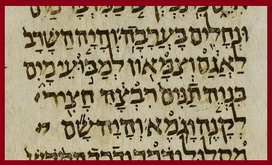
And the parched [ground] shall be a marsh, and the arid [ground] springs of waters; in the lairs [where] serpents crouch shall be grass, reeds, and rushes.
Additionally, the word for “wind” in Matthew 11:7 is RUKHA, which is the same exact word that is used for “Spirit.” Since Yeshua is speaking now about the religious zealot John, the connection would likely have been understood by those present, for He continues to say “that from the wind is shaken,” but which could just as legitimately be translated as “who from the Spirit is shaken.” With the phonetic similarities and word-play at work, it would sound very much in its complete form to be as if it were suggesting instead of: “a reed that from the wind is shaken” to be rather: “a zealot who from the Spirit is shaken.”
This word-play seems to be supported also by returning to the text of 1st Kings 19:11, which continues the account of the zealous Elijah at Horeb, and adds an interesting element to the mix.
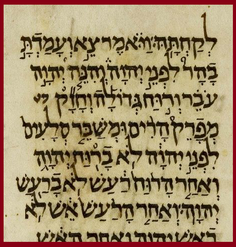
And He said, “You must go forth, and stand on the Mountain before YHWH.” And see, YHWH passed by, and a great wind—and strong—broke the mountains and shattered the rocks before YHWH. YHWH was not in the wind. And after the wind was a shaking. YHWH was not in the shaking.
The word used here for “wind” is the Hebrew term RUAKH, which, like its Aramaic cognate of RUKHA, doubles also as the word for “Spirit.” Therefore, the sense of the Hebrew passage could be taken to intend “spirit” just as well as “wind,” mirroring what Yeshua said in his words about the Baptist.
The term for “shaken” that ends the question in verse 7 is also worth noting. It is the Aramaic METTZIA and finds its connection to the account in the Aramaic Peshitta of 1st Kings 19:11, where it uses the exact same term for “shaken” in a slightly different conjugation to describe the “shaking” Elijah experienced during his visit to Horeb.
In fact, the passage that is in the Aramaic version of 1st Kings 19:11 reads RUKHA ZOWA “…the wind [was] a shaking,” which seems to be the reference for Yeshua’s statement of RUKHA METTZIA “the wind shaken.”
The end result of all of this clever allusion and call-back in Matthew 11:7 could be represented in graphic form as something like this:
The end result of all of this clever allusion and call-back in Matthew 11:7 could be represented in graphic form as something like this:
Amazingly, all of this only exists in the Aramaic text. The Greek, Latin, and much later Hebrew Matthews show no sign of such complex references in those languages. The Peshitta alone seems to preserve the actual words of Yeshua that were heavy with significance and allow us to appreciate the role of John even more than before!
Moving on to Matthew 11:8, we see yet more alignments hinted at between John and Elijah.
Moving on to Matthew 11:8, we see yet more alignments hinted at between John and Elijah.

And if not, what did you go forth to see? a man who is dressed [in] outer garments of soft cloth? See! those who are softly dressed are among the kings!
This is likely a reference to the Aramaic Peshitta’s version of 1st Kings 22:10, which speaks of King Ahab (Elijah’s major enemy) as sitting on his throne and being dressed in a highly decorated robe (the Biblical text does not describe the robe). The fact that the Aramaic refers to a soft garment is probably a nod to familiar Aramaic terminology surrounding Elijah’s enemy. There is an irony also in this in that first century historian Josephus, in his Antiquities of the Jews 18.5.2, tells us that John was imprisoned at the fortress Machaerus by King Herod, where he was later executed at Salome’s vengeful request. The finely-dressed King Ahab was to Elijah what King Herod was to John.
This mention of someone who obviously would not be clothed in finery aligns both with Elijah and John. We read of Elijah’s clothing in 2nd Kings 1:8.
This mention of someone who obviously would not be clothed in finery aligns both with Elijah and John. We read of Elijah’s clothing in 2nd Kings 1:8.
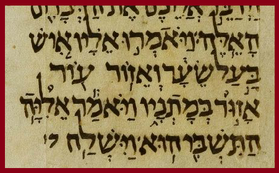
And they answered him, “He was a hairy man, and girded with a girdle of leather on his waist.” And he said, “Eliyah the Tishbi is he.”
The Targum Yonatan of this passage translates the Hebrew into Aramaic in this manner:
It is important to see how it was translated, for the words used about the clothing of John the Baptist strongly parallel that description in Matthew 3:4.

Yet this Yukhanan, his garment was of the hair of camels, and a waist-belt of leather was upon his waist…
The Peshitta’s expression about John shares four of the same descriptive terms as the Aramaic Targum of Yonatan in describing Elijah. The parallels thus are maintained between the two prophets. John continued the ministry of his predecessor in so many ways.
And yet, the task given to John was greater than all other who came before, as Yeshua’s words make clear in Matthew 11:9-11.
And yet, the task given to John was greater than all other who came before, as Yeshua’s words make clear in Matthew 11:9-11.
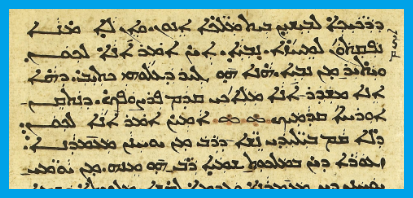
9 And if not, what did you go forth to see? a prophet? Yes! I say to you: and more than a prophet!
10 For this is concerning him that is written: ‘See, I am sending My messenger before your face, that he should prepare the way before you.’
11 Surely, I say to you, that none has arisen by those born of women who is greater than Yukhanan the Immerser, yet, the least in the Kingdom [of] the Heavens is greater than he!
10 For this is concerning him that is written: ‘See, I am sending My messenger before your face, that he should prepare the way before you.’
11 Surely, I say to you, that none has arisen by those born of women who is greater than Yukhanan the Immerser, yet, the least in the Kingdom [of] the Heavens is greater than he!
The Baptist’s preeminence among those who came before him is due not only to his unparalleled spiritual connection to the prophet Elijah, but also due to the fact that he is the prophesied herald of the Messiah during His first coming, as foretold in Malachi 3:1.
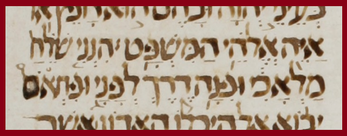
See! I shall send My messenger, and he shall prepare the way before Me…
While all other prophets had missions of importance in their respective ministries, John alone out of everyone was singularly burdened with preparing people for the immediate materialization of Messiah on the scene. Empowered by the spirit of Elijah, he would preach repentance with zeal and bring near all who were distant in preparation for the Messianic ministry his cousin was about to assume. For this reason, he is declared by Yeshua’s own words to be of supreme significance in his calling to ready the Kingdom for its King.
Yeshua continues his focus upon his cousin John by mentioning the spiritual state of the Kingdom in verse 12.
Yeshua continues his focus upon his cousin John by mentioning the spiritual state of the Kingdom in verse 12.

Yet, from the days of Yukhanan the Immerser, and until now, the Kingdom of the heavens by force is guided, and the forceful seize it!
The interpretation of this passage has been far and wide by all manner of teachers over many long centuries. Most believers have probably encountered attempted explanations of what this is supposed to mean and have probably found in such suggestions several competing responses.
Admittedly, there is not really anything in the text itself to yield a sensible explanation of Yeshua’s statement. It is thus not surprising to find this verse has been the subject of multiple attempts at explanation. The most logical answer to be given can be arrived at only by considering the witness of Jewish texts beyond the corpus of Scripture. Let us turn to the text of the ancient Mishnah, in Eduyot 8:7.
Admittedly, there is not really anything in the text itself to yield a sensible explanation of Yeshua’s statement. It is thus not surprising to find this verse has been the subject of multiple attempts at explanation. The most logical answer to be given can be arrived at only by considering the witness of Jewish texts beyond the corpus of Scripture. Let us turn to the text of the ancient Mishnah, in Eduyot 8:7.
This passage of the Mishnah gives an account that was five generations old (originally occurring probably around 100BCE), telling us that some people were unfairly judged as not meeting the legal standards required to be part of the nation of Israel, and others were unfairly judged as meeting the legal standards required to be part of the nation of Israel. Both of these unjust actions were done “by force,” that is to say, someone usurped the authority to judge these issues and did what they wanted. Elijah’s coming is said to correct such injustice.
Although we do not know much about the family of Beit Tzrifah, their name itself is of interest, in that the word TZRIFAH has the notion of “Bulrush” as well as “refine.”
Although we do not know much about the family of Beit Tzrifah, their name itself is of interest, in that the word TZRIFAH has the notion of “Bulrush” as well as “refine.”
A bulrush, coincidentally, is essentially another name used for a “reed.” How odd that the Mishnah mentions a family whose name is essentially that of “reed” and speaks of this in the context of the coming of Elijah, and Yeshua mentions John in the context of a reed! This is no coincidence!
This connection to Elijah in the term TZRIFAH is one that is further seen in Scripture in 1st Kings 17:9-10 in his dealings with the widow of Zarephath. Zarephath is pronounced in the Hebrew in the form of TZARFATH, which is itself just a variant pronunciation of TZRIFAH, and in this usage, means “Refinery.”
This connection to Elijah in the term TZRIFAH is one that is further seen in Scripture in 1st Kings 17:9-10 in his dealings with the widow of Zarephath. Zarephath is pronounced in the Hebrew in the form of TZARFATH, which is itself just a variant pronunciation of TZRIFAH, and in this usage, means “Refinery.”
Yeshua bringing up the notion of the Kingdom being taken “by force” is a reference point that would have probably been known by His listeners of when someone in a place of power usurped their authority to remove people from their rightful place and installed others who were not in their rightful place. He says this regarding John as a priest, who was of the family of Abijah (a priestly family mentioned in 1st Chronicles 24:10 as being the eighth course to serve in the Temple in the year). This priestly right of John was not carried out, for so we see in Luke 1:80 that he remained in the wilderness until he appeared to Israel in his prophetic role in the spirit of Elijah.
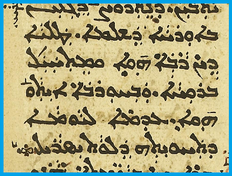
Yet, the youth grew, and was strong in the Spirit, and was in the wasteland until the day that he showed himself before Isra'el.
The reason for this absence from Temple life likely stemmed from the acts of King Herod, and later, the Roman legate Quirinius, who took it upon themselves to install priests in alignment with their various whimsical or calculated sentiments, disregarding the Divinely-ordained transmission of the Aharonic priestood. This amounted to a coup of the divine service in the Temple and is largely responsible for the presence of the outcast priestly community at Qumran and the flourishing of the Essenes in that locale. John was very probably a victim of that usurpation by force, such that his priestly calling dissipated before he was ever of age to serve. The Baptist’s zealous ministry of repentance was thus a true indictment against the authorities who allowed that which had been taken by force to remain functioning in flagrant disregard for the faithful.
Yeshua’s words can be appreciated far better when the context of the time is taken into consideration along with the words that would have been well known of unjust actions that removed and installed people by those in power misusing their authority for their own devices. In these things we can see the link between Elijah and John in a startlingly sober and sorrowful manner.
Yeshua’s next statement is almost equally as enigmatic as his previous one. In verse 13 He utters something that has been attempted to be explained in all kinds of ways.
Yeshua’s next statement is almost equally as enigmatic as his previous one. In verse 13 He utters something that has been attempted to be explained in all kinds of ways.

For all of the Prophets and the Oraita prophesied until Yukhanan.
I have translated this passage from the Aramaic of the Peshitta and have left in it the transliteration of the term Yeshua used for “Law.” The reason for this is that Yeshua was attempting to highlight a specific notion, and so I have preserved what He said to better bring out this concept for the reader.
Typically, when Yeshua speaks of the “Law” in the Aramaic Peshitta text, He uses the term NAMUSA, which is the generic Aramaic loan-word of the Greek NOMOS “Law.” Only in a very few instances is Yeshua recorded in the Peshitta as using the term ORAITA. This word is the Aramaic cognate of the Hebrew term TORAH. Although they do not visually appear similar, they share the exact same Semitic root word of YARAH, which becomes TORAH through Hebrew conjugation and ORAITA through Aramaic conjugation. Both are used to refer to the same section of Divine law comprising the first five books of Scripture.
Typically, when Yeshua speaks of the “Law” in the Aramaic Peshitta text, He uses the term NAMUSA, which is the generic Aramaic loan-word of the Greek NOMOS “Law.” Only in a very few instances is Yeshua recorded in the Peshitta as using the term ORAITA. This word is the Aramaic cognate of the Hebrew term TORAH. Although they do not visually appear similar, they share the exact same Semitic root word of YARAH, which becomes TORAH through Hebrew conjugation and ORAITA through Aramaic conjugation. Both are used to refer to the same section of Divine law comprising the first five books of Scripture.
But what is the significance for Yeshua breaking from His normal usage and choosing the distinctly Aramaic term ORAITA at this point?
The reason for using ORAITA appears to be a direct reference to the reading of Isaiah 35:5, which He quoted back in Matthew 11:5 in his response to John’s disciples. However, in this usage, it is a reference to the Aramaic Targum Yonatan version of that passage.
The reason for using ORAITA appears to be a direct reference to the reading of Isaiah 35:5, which He quoted back in Matthew 11:5 in his response to John’s disciples. However, in this usage, it is a reference to the Aramaic Targum Yonatan version of that passage.
In this translation of the words of Isaiah, we see the Oraita and the Prophets referred to together in the same passage! The fact that Yeshua had just previously quoted this passage from its Hebrew context, and now pairs the phrase “the Prophets and the Oraita” which is found in its Aramaic version shows how all of His words concerning John are connected here!
His words end in verses 14-15, which connect with the above verse from Isaiah 35:5.
His words end in verses 14-15, which connect with the above verse from Isaiah 35:5.

14 And if you are willing, you must receive that he is Eliya who was prepared to come!
15 He that has for him ears to hear, shall hear!
15 He that has for him ears to hear, shall hear!
For those who will, we must receive the truth of the special nature of John: he carried the spirit of Elijah to fulfill the prophesied task of the call to bring near the people through his words of repentance! And in line with how the passage from Isaiah 35:5 was worded in its Aramaic Targum, we must have ears to hear them!
From beginning to end, Yeshua’s words about John turn back again and again to his connection to Elijah. When one returns to the wording of the Aramaic Peshitta, this reality comes alive and can be appreciated in full. The spiritual task of the Baptist was so much more than the act of calling people to immerse into the waters of the Jordan. His purpose was wrapped up in every way with fulfilling the prophetic role of Elijah, and in that zealous effort to bring people near the Holy One once more, he set the stage for the words of the Messiah to be taken to heart. By the dauntless endeavor of the Baptist on the banks of the river Jordan, the Kingdom had citizens prepared to pledge their allegiance to the coming King of Israel.
All study contents Copyright Jeremy Chance Springfield, except for graphics and images, which are Copyright their respective creators.
